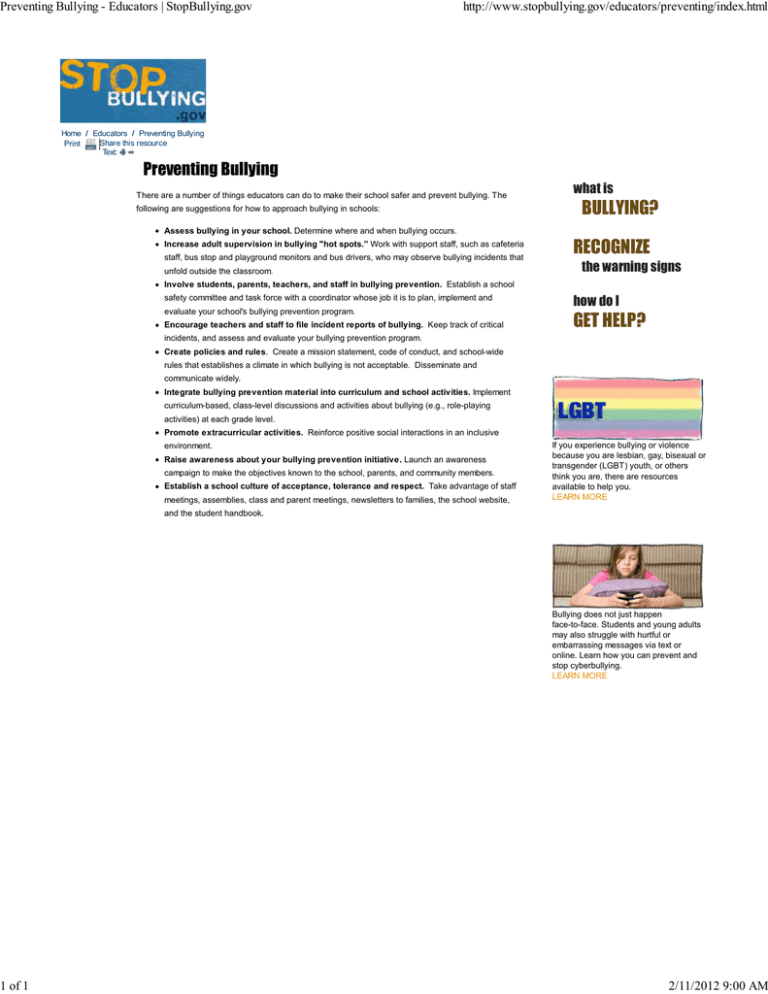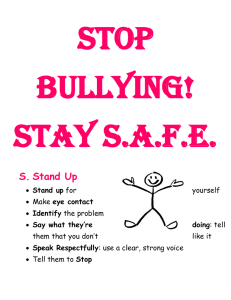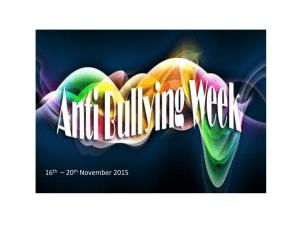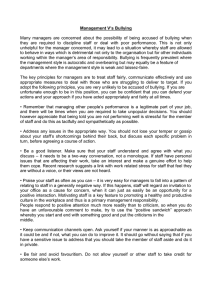Preventing Bullying - Educators | StopBullying.gov
advertisement

Preventing Bullying - Educators | StopBullying.gov 1 of 1 http://www.stopbullying.gov/educators/preventing/index.html Home / Educators / Preventing Bullying Share this resource Print Text: Preventing Bullying There are a number of things educators can do to make their school safer and prevent bullying. The following are suggestions for how to approach bullying in schools: what is BULLYING? Assess bullying in your school. Determine where and when bullying occurs. Increase adult supervision in bullying "hot spots.” Work with support staff, such as cafeteria staff, bus stop and playground monitors and bus drivers, who may observe bullying incidents that unfold outside the classroom. RECOGNIZE the warning signs Involve students, parents, teachers, and staff in bullying prevention. Establish a school safety committee and task force with a coordinator whose job it is to plan, implement and evaluate your school's bullying prevention program. Encourage teachers and staff to file incident reports of bullying. Keep track of critical how do I GET HELP? incidents, and assess and evaluate your bullying prevention program. Create policies and rules. Create a mission statement, code of conduct, and school-wide rules that establishes a climate in which bullying is not acceptable. Disseminate and communicate widely. Integrate bullying prevention material into curriculum and school activities. Implement curriculum-based, class-level discussions and activities about bullying (e.g., role-playing activities) at each grade level. Promote extracurricular activities. Reinforce positive social interactions in an inclusive environment. Raise awareness about your bullying prevention initiative. Launch an awareness campaign to make the objectives known to the school, parents, and community members. Establish a school culture of acceptance, tolerance and respect. Take advantage of staff meetings, assemblies, class and parent meetings, newsletters to families, the school website, If you experience bullying or violence because you are lesbian, gay, bisexual or transgender (LGBT) youth, or others think you are, there are resources available to help you. LEARN MORE and the student handbook. Bullying does not just happen face-to-face. Students and young adults may also struggle with hurtful or embarrassing messages via text or online. Learn how you can prevent and stop cyberbullying. LEARN MORE 2/11/2012 9:00 AM


